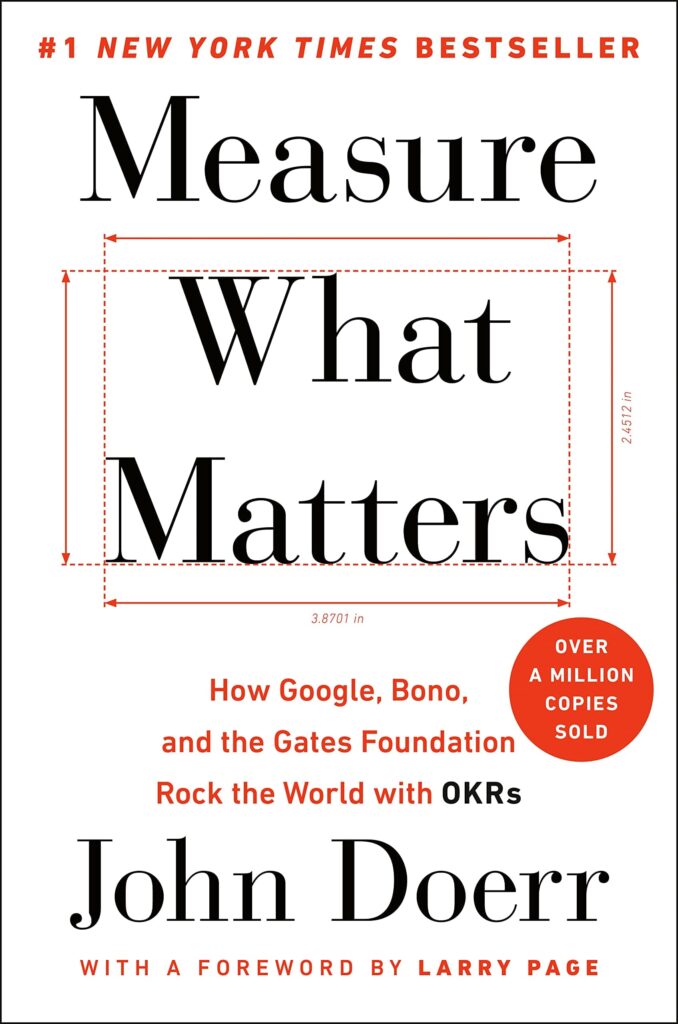Measure What Matters: How Google, Bono, and the Gates Foundation Rock the World with OKRs
John E. Doerr, Larry Page

In the fall of 1999, John Doerr met with the founders of a start-up whom he’d just given $12.5 million, the biggest investment of his career. Larry Page and Sergey Brin had amazing technology, entrepreneurial energy, and sky-high ambitions, but no real business plan. For Google to change the world (or even to survive), Page and Brin had to learn how to make tough choices on priorities while keeping their team on track. They’d have to know when to pull the plug on losing propositions, to fail fast. And they needed timely, relevant data to track their progress — to measure what mattered.
Key Summary
“Measure What Matters: How Google, Bono, and the Gates Foundation Rock the World with OKRs” is a book by John Doerr that explores the use of Objectives and Key Results (OKRs) as a tool for setting goals and measuring success. The book argues that OKRs provide a simple, yet powerful way to align a team around a common purpose, focus on what’s important, and achieve outstanding results.
Takeaways
1. OKRs help companies set specific and measurable goals, align teams, and make progress towards desired outcomes.
2. OKRs should be time-bound, challenging, and should focus on the most important goals for a company.
3. OKRs are used by companies such as Google, Intel, and the Gates Foundation to drive success and focus efforts.
4. OKRs can be used by individuals to set personal goals, too.
5. OKRs require regular check-ins and updates to ensure progress and adjust for changes in priorities.
6. OKRs should be written in a way that is easy to understand and communicate to others.
7. The use of OKRs helps companies focus their efforts, avoid distractions, and stay on track.
8. Teams should use OKRs to break down larger goals into smaller, manageable tasks.
9. Teams should regularly track and celebrate their successes, and adjust their strategies as needed.
10. OKRs can help companies and individuals make informed decisions, prioritize their efforts, and achieve outstanding results.